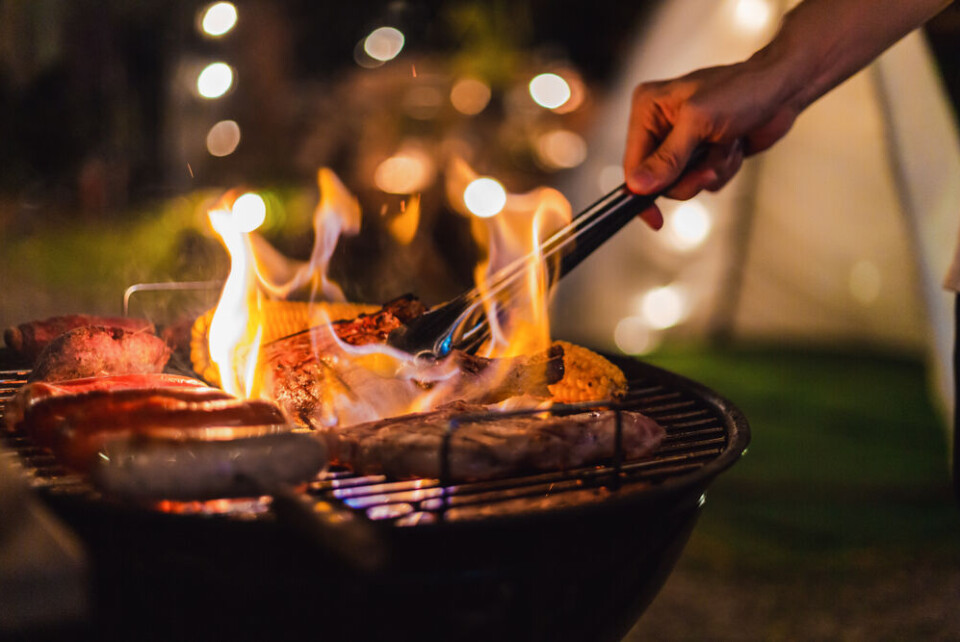-
Pistes closed, confinement orders: Alpine resorts deal with avalanche risk
Increased snowfall this weekend may cause further closures as busy school holiday season continues
-
Former French Interior Minister announces 2027 presidential candidacy
Bruno Retailleau recently asked prefectures to be tough on immigration
-
Ryanair axes Dublin-Rodez route but London connection retained
“We are disappointed but had no say in decision” say airport authorities
BBQ steak ‘a sign of virility’: The facts behind French MP’s comment
We explain the context of the quote, the backlash that has followed and the links it raises between male diet, meat and climate change

A French MP has sparked controversy and prompted a backlash by saying that society must ‘change mentality so that eating a barbecued steak is no longer a symbol of virility’.
Sandrine Rousseau, from the green party Europe Ecologie-Les Verts (EELV) in Paris, made the comment at an event in Grenoble (Auvergne-Rhône-Alpes) in late August.
She was talking about how consumption of meat has an impact on the climate and environment.
The comment was reported by a journalist at news outlet le Dauphiné libéré and quickly prompted strong rebukes.
Eric Ciotti, Les Républicains (centre right) MP and conseiller départemental of the Alpes-Maritimes, wrote on Twitter: “When the grotesque reaches its height... Stop this nonsense!”, while Nadine Morano, also from Les Républicains, said: “That’s enough of accusing our boys of everything. Stop the ‘dismantling’ of men. Enough of Rousseau’s ramblings.”
Fabien Roussel, secretary of the French communist party (PCF), told Europe 1: “We eat meat based on the money in our wallet, not what’s in our pants.”
And yet, some MPs supported Ms Rousseau’s idea. Clémentine Autain, from La France Insoumise, said: “Women eat half as much meat as men.” Julien Bayou, also EELV, also came out in support.
However, Yannick Jadot, who was the green party’s presidential candidate during this year’s presidential election campaign, said that he “regretted this row.” He said MPs should be “more educational and better articulate the major global and lifestyle challenges that are affecting the daily lives of people in France”.
The context of the debate
Amid the rising cost of living and climate change debates, meat consumption has become a controversial political issue.
Essayist Jean-Laurent Cassely, co-author of La France sous nos yeux, has said that the media and conservative personalities are seizing on the debate, to claim that ‘part of the left would like to prevent people in France from eating what they want, especially red meat’.
Ms Rousseau has now entered that debate even more visibly.
She has become a favourite target of some conservative circles in recent years due to her mix of ecology and feminism and as the co-author of her own essay on the links between patriarchy, capitalism and climate change.
She has received criticism on Twitter, and is the subject of several parody accounts. She has also been caught in the crossfires of a complaint from hunting group the Fédération Nationale des Chasseurs, after she made a comment on a France 2 TV show that linked hunting rifles to the killing of women.
Meat consumption: The difference between genders
There is a difference in meat consumption habits between men and women, the most recent iteration of the étude individuelle nationale des consommations alimentaires (INCA) shows.
This study is carried out every seven years under the authority of the Ministry of Health and Ministry of Agriculture.
It found: “Gender disparities appear during adolescence and become more marked in adulthood. They concern food consumption in particular.
“This is more in line with the dietary guidelines for women (who prefer poultry, yoghurts and white cheeses, compotes, soups, fruit juices, and hot drinks) than for men (who prefer other meats, cheeses, desserts and cream desserts, cold meats, sandwiches and savoury pastries).
“One figure is often highlighted: the median consumption of meat (excluding poultry) is 43 grams per day for men aged 18 to 79, compared to 27 grams for women.”
Meat also tends to be more expensive than meat-free items and used to be seen as a more prestigious ingredient eaten by the rich or for special occasions.
A study for FranceAgriMer on the changing vegetarian diets in Europe said: “In the context of the scarcity of meat for the peasant and working-class populations [in years past], the consumption of meat products also varied within a household.
“The head of the family was entitled to larger and higher quality portions to replenish the labour force and ensure the satiation of those who 'brought home the bacon’”.
It also said that anthropologists had found that “we can see the roots of meat as a ‘masculine’ food”. This is partly linked to the fact that more women than men typically tend to follow low-meat or vegetarian diets, it said.
The links between meat consumption and climate change
Meat consumption exploded worldwide from the 1960s, causing a significant effect on global warming and climate change.
Some meat production requires more resources and emits more greenhouse gas than others.
The website co2everything.com shows that beef is the meat that produces the most CO2 emissions:
- 100g of beef - 15.5kg of CO2
- 100g lamb - 5.84kg of CO2
- 100g pork - 2.4kg of CO2
- 100g chicken - 1.82kg of CO2
- 100g fish - 1.35kg of CO2
In 2019, medical journal The Lancet published an article that said that Europeans would need to reduce their consumption of red meat by 77% in order to respect the planet’s resources, and instead double their consumption of fruit, vegetables, nuts and legumes.
A study based on the eating habits of 212 British people, published in November 2021 in the journal Plos One, found that a vegetarian diet emits 59% less greenhouse gases than a typical diet.
On average, men’s diets had 41% more impact on the climate than those of women, largely due to their increased consumption of meat and alcohol.
Related articles
French meat consumption drops by 12% in 10 years
























